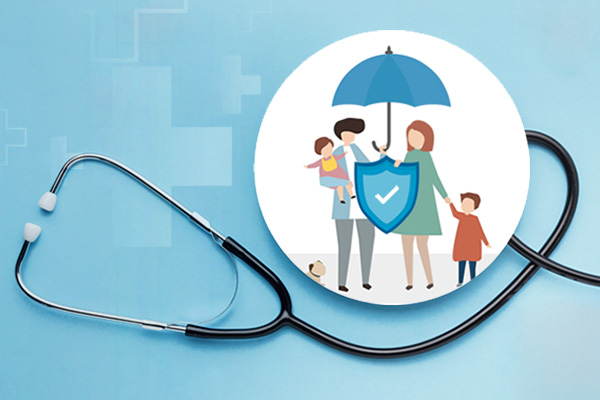Medical insurance is a crucial aspect of healthcare that helps individuals manage the costs associated with medical care. It can be complex, with various plans and terms that can be overwhelming for many. This article aims to clarify common questions about medical insurance, providing valuable insights to help you make informed decisions.

FAQ 1: What is Medical Insurance and How Does It Work?
Definition and Overview
Medical insurance is a contract between an individual and an insurance provider that offers financial coverage for healthcare services. When you enroll in a medical insurance plan, you agree to pay a premium—typically a monthly fee—in exchange for the insurer covering certain medical expenses.
How It Works
- Premiums: The amount you pay each month to maintain your coverage. Premiums can vary based on factors such as age, location, and the specific plan.
- Deductibles: This is the amount you must pay out-of-pocket before your insurance begins to cover costs. For example, if your deductible is $1,500, you will need to pay that amount for medical services before your insurer contributes.
- Copayments and Coinsurance:
- Copayment: A fixed fee you pay for a particular service (e.g., a doctor’s visit).
- Coinsurance: A percentage of the costs that you pay after meeting your deductible. For instance, if your plan has a 20% coinsurance, you’ll pay 20% of the costs after your deductible is met.
- Out-of-Pocket Maximum: The total amount you will have to pay for covered services in a given year. Once you reach this limit, your insurance will cover 100% of the costs for the rest of the year.
FAQ 2: What Types of Medical Insurance Are Available?
Common Types
- Employer-Sponsored Insurance: Many people receive medical insurance through their employers. These plans are often more affordable because employers typically contribute to the premium costs.
- Individual and Family Plans: These plans are purchased directly from insurance companies or through government marketplaces. They are tailored to meet specific health needs.
- Government Programs:
- Medicare: A federal program for individuals aged 65 and older, as well as certain younger individuals with disabilities.
- Medicaid: A state and federal program offering health coverage to low-income individuals and families.
- Children’s Health Insurance Program (CHIP): Provides coverage to eligible children in families with incomes too high for Medicaid but too low to afford private coverage.
- Short-Term Health Insurance: These plans provide temporary coverage and can be a stopgap for individuals between jobs or waiting for other coverage to begin.
- Catastrophic Plans: Designed for young individuals or those unable to afford comprehensive coverage, these plans have lower premiums but higher deductibles. They cover essential health benefits after the deductible is met.
FAQ 3: How Do I Choose the Right Medical Insurance Plan?
Choosing the right medical insurance plan can be challenging. Here are some factors to consider:
1. Assess Your Health Needs
Evaluate your healthcare needs, including any chronic conditions, medications, or expected medical procedures. Understanding your needs will help you select a plan that covers the services you require.
2. Understand Your Budget
Determine how much you can afford to spend on premiums, deductibles, and out-of-pocket costs. Consider not only monthly payments but also potential medical expenses throughout the year.
3. Compare Plans
Research various plans available in your area. Look for differences in premiums, deductibles, and coverage levels. Pay attention to what services are included and what costs you might incur.
4. Check the Provider Network
Ensure that your preferred doctors and hospitals are in the plan’s network. Out-of-network care can lead to higher costs, so it’s essential to verify the availability of your healthcare providers.
5. Read the Policy Details
Carefully review the terms and conditions of the policy. Understand what is covered, any exclusions, and the claims process. Being informed can help you avoid unexpected costs.
FAQ 4: What Should I Know About Pre-existing Conditions?
Definition and Coverage
A pre-existing condition is any health issue that existed before obtaining medical insurance. This can include chronic illnesses such as diabetes, asthma, or heart disease.
Impact on Coverage
Under the Affordable Care Act (ACA), insurers cannot deny coverage or charge higher premiums based on pre-existing conditions. This means that individuals with pre-existing conditions can access health insurance without facing discrimination. However, it is still crucial to check the specifics of a plan, as some short-term plans may have exclusions related to pre-existing conditions.
FAQ 5: What Happens if I Miss a Payment?
Consequences of Non-Payment
Missing a payment can have serious consequences for your medical insurance coverage. Here’s what may happen:
- Grace Period: Most insurance companies provide a grace period (typically 30 days) after the due date. During this time, your coverage usually remains active.
- Cancellation: If the premium is not paid within the grace period, the insurer may cancel your policy, leading to a lapse in coverage. This means you may be responsible for all medical expenses incurred during that time.
- Reinstatement: Some insurers allow for reinstatement of coverage after cancellation, but this may involve additional fees or a waiting period.
Importance of Communication
If you anticipate difficulty in making a payment, it’s essential to communicate with your insurance provider as soon as possible. Many companies may offer assistance or alternative payment arrangements to help you maintain your coverage.
Conclusion
Understanding medical insurance is essential for navigating the complexities of healthcare. By addressing these frequently asked questions, individuals can gain a clearer understanding of how medical insurance works, the types of coverage available, and the factors to consider when choosing a plan.
Having medical insurance not only provides financial protection but also ensures access to necessary healthcare services. Whether you’re exploring employer-sponsored options, individual plans, or government programs, being informed will empower you to make the best choices for your health and financial well-being. Remember, the right medical insurance plan can significantly impact your overall quality of life.








